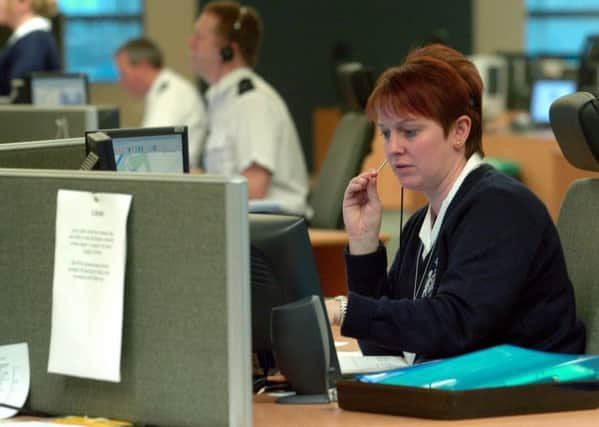Police forced to set up staff ‘wellbeing clinics’


The force said its Contact, Command and Control division had experienced high numbers of vacancies and significant change to shifts.
Unison, the union which represents police staff, said new targets for call handling had left control rooms feeling like call centres.
Advertisement
Hide AdAdvertisement
Hide AdFive control rooms are being closed as part of the re-organisation and cost-cutting taking place following the creation of the single force.
Last month, Lib Dem leader Willie Rennie urged Police Scotland to halt the programme of closures amid reports that problems at Bilston Glen in Midlothian led to more than 1,000 calls being lost in just one day.
The control room previously handled calls for the Lothians and Borders, but is now also receiving calls from Fife following the closure of the Glenrothes centre on March 17. In a report from Police Scotland’s HR department sent to the Scottish Police Authority, the force says there are no “quick fixes” to the problems caused by the programme of closures.
Referring to problems caused by absenteeism across the service, the report states: “An example of this is within 3C (Contact, Command and Control) who have experienced both high numbers of vacancies, significant change – including shift changes in centres that have remained – the introduction of new workload and new staff joining from closing centres.
“This has resulted in staff, either directly or through trade union colleagues, raising concerns around the impact of change they experience with the workplace.
“3C have responded to this by engaging with occupational health and are arranging a series of wellbeing clinics.”
The report goes on to say that change at Bilston will continue for “some time”, while work from Glenrothes is incorporated.
Lucille Inglis, Unison convener for Police Scotland staff in the east of Scotland, said: “We’ve been putting pressure on management because of the stress staff are under.
Advertisement
Hide AdAdvertisement
Hide Ad“Where the service has changed is that [in the past] where the person on the line would assist you, now it’s just glorified telephony before the call is passed on. Our sickness levels have gone up and there have been people who have just resigned because they are struggling to cope.”
George McIrvine, Unison branch secretary for police staff, added: “Bilston does not have enough staff to cover the job. Police Scotland have let 1,300 people go, but the job still needs done.”
He said performance screens introduced at Bilston had put staff under more pressure.
“These people who are already overworked are now looking at screens telling them how many calls are in the queue and what their performance has been. Basically, you are turned into a call centre rather than a public service.”
Chief Superintendent Alan Speirs said: “The health and wellbeing of our staff is of paramount importance. Occupational Health is undertaking a series of wellbeing visits across the force area to give staff the opportunity to discuss a variety of healthy lifestyle choices. As part of this programme, they will visit Bilston Glen next week.
“Police Scotland provides a wide variety of support to officers and staff including clinics, employee assistance programmes, which are available 24 hours a day, seven days a week, as well as an online resource which provides information on a variety of topics.”